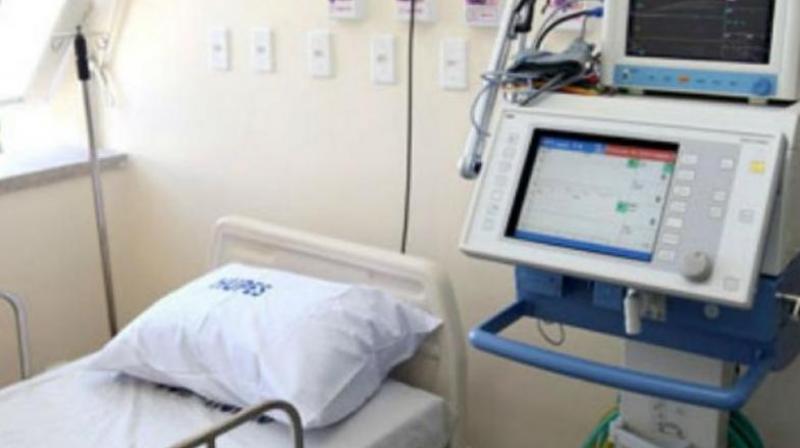Kurnool: Lack of digital records results in more deaths
None of the state-run hospitals maintain digital records.

KURNOOL: More people die at Kurnool General Hospital due to mix up in medical records, administering wrong group of blood transfusion, prescribing wrong treatment to patients. About 600 deaths, on an average, are recorded at this hospital. There is no digital record to track the treatment path as records are maintained in a shabby manner manually. A case in point is the wrong administering of medication to a patient having identical name that has seen the death of a patient on Monday.
Admitting that the patient record maintenance was still manual, the Kurnool General Hospital Superindent K Chandrasekhar said that the infrastructure is very poor in the hospital. “We are still not yet on digitising hospital records. Not only here, none of the government hospitals in the state are digitised”. The patient load on doctors is also very huge. For example, a neurosurgeon has to treat 180 patients daily, said Dr Chandrasekhar. It is humungous, and perhaps, nowhere in the world such a tall task on a single surgeon, he said. He also said that we have sent proposals to increase three-fold the neurosurgery department but there was no response from the state.
The ‘high-tech’ Andhra Pradesh scores very low in terms of adopting digital technologies in state-run hospitals. Despite huge budgets for upkeep, maintenance, medical supplies, the government did not find it useful to automate patient records. A partner at DSR and Associates Koteswara Rao, said that the legal system relies mainly on documentary evidence in a situation where medical negligence is alleged by the patient or the relatives. Not keeping electronic records would work against the interests of the medical professionals. He said that in an accusation of negligence, this is very often the most important evidence deciding on the sentencing or acquittal of the doctor. Further he added that with the increasing use of medical insurance for treatment, the insurance companies require proper record proving the patient's demand for medical expenses. Improper record keeping can result in declining medical claims.
IMA secretary, Kurnool Unit, Dr Mallikarjuna, said that medical records include a variety of documentation of patient's history, clinical findings, diagnostic test results, preoperative care, operation notes, postoperative care, and daily notes of a patient's progress and medications. “A properly obtained consent will go a long way in proving that the procedures were conducted with the concurrence of the patient. A properly written operative note can protect a surgeon,” he added.

